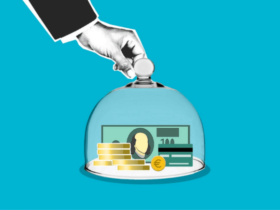What Is a Credit Score? A credit score is a number that indicates your risk as a borrower and the likelihood that you will pay your bills on time.
The higher the score, the better the borrower looks to potential lenders. A credit score is based on credit history. The number of accounts opened, the total level of debt, and history of repayment, and other factors.
Lenders use credit scores to evaluate the likelihood that a person will repay the loan on time.
Credit scores determined by a mathematical model (called a scoring model) and are based on the information in the credit report.
The credit score model created by Fair Isaac Corporation, also known as FICO, and used by financial institutions.
While other credit-scoring systems exist, the FICO score is by far the most used. There are many ways to improve a person’s score, including repaying the debt on time and keeping debt low.
How Credit Scores Work
A credit score can significantly affect your financial life. This plays an important role in the decision of a lender to give you a loan.
For example, people with credit scores less than 640 generally considered subprime borrowers.
Lending institutions often charge interest on a subprime mortgage at a higher rate than a traditional mortgage to compensate themselves for taking on more risk.
They may also require shorter repayment periods or co-signers for borrowers with lower credit scores.
Conversely, a credit score of 700 or more generally considered to good and may result in the borrower receiving a lower interest rate, resulting in less money to pay in interest over the life of the loan.
A score over 800 considered excellent. While each creditor defines its own limits for credit scores, the average FICO score range is often used:
- Excellent: 800 to 850
- Very Good: 740 to 799
- Good: 670 to 739
- Fair: 580 to 669
- Poor: 300 to 579
A person’s credit score can also determine the size of the initial deposit required to acquire a smartphone, cable service or utilities, or to rent an apartment. And lenders often review borrowers’ scores, especially when deciding whether to change the interest rate or credit limit on a credit card.
READ ALSO : How to Check your Bank Balance Online
How Your Credit Score Is Calculated
- Payment history
- Total amount owed
- Length of credit history
- Types of credit
- New credit
- Payment history: 35%. Have you missed payments or defaulted on loans?
- Current debt: 30%. How much do you owe, and are you maxed out on credit cards?
- Length of credit: 15%. Is credit new to you, or do you have a long history of borrowing and paying it back?
- New credit: 10%. Have you applied for numerous loans in the recent past?
- Types of credit: 10%. Do you have a healthy mix of different types of debt: auto, home, credit cards, and others?
Some people do not have a history of borrowing because they are young, they have never taken a loan for credit cards or other reasons before.
For these types of loan applicants, alternative credit scores look at other sources of information for payment histories, such as utility bills, rent, and more.
Impact on Credit
How many credit scores are affected by specific activities within the five categories that measure your score.
The credit bureaus do not uncover such nuances, and even if they did, the algorithm is so complex in conjunction with factors that it would be difficult to pin a single credit score value to pay or miss a payment.
Payment history and current debt account for about two-thirds of your score, so performing well in those areas are especially important.
The credit bureau maintains a record of late payments for seven years and also takes care of the percentage of payments.
Ideally, you want to make your 100% payment on time, but if you are late, you want to make sure that it is a separate event, so you can keep it in the past. The more time passes without any further delay, the better your score will be.
Frequently Asked Questions
READ ALSO: Credit Card Comparison of All Banks in India








